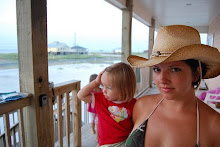 I learned of this book through the innovative and amazing website of my friend, Chicago-based English teacher Joe Scotese, but didn’t realize until after I read it that Pasulka teaches English at the same magnet high school as Joe. Not one to let a single degree of separation stop me, I struck up a correspondence with the author, and she kindly agreed to let me interview her for The Shelf Life.
I learned of this book through the innovative and amazing website of my friend, Chicago-based English teacher Joe Scotese, but didn’t realize until after I read it that Pasulka teaches English at the same magnet high school as Joe. Not one to let a single degree of separation stop me, I struck up a correspondence with the author, and she kindly agreed to let me interview her for The Shelf Life. Here's part two of the interview.
Sassy: You get up early every morning to write for two hours before going to work as a high school English teacher, is that right? Have you always been that disciplined? What time do you go to bed? How does one form that kind of work habit?
BP: The hard work and discipline definitely comes from my parents. I remember being allowed to watch one hour of television a week when we were young, and even then, we had to get up and clean or fold laundry on the commercials. My dad, especially, never seems to slow down, and I’ve happily inherited that from him. As for writing, I think I was writing here and there for about a year before I decided that I either had to commit to it or leave it alone. So I made a New Year’s resolution (in 1996, I think?) that I was going to write every day. I put a calendar on the wall and crossed off the days until I got into the habit. Now it’s like taking a shower or brushing my teeth—if I don’t write I just don’t feel right. And I’ve always had to work it in around my regular jobs. I am a high school teacher now, so on a normal day I try to go to bed at 10 or 10:30, get up at 5:30 and write until about 7:30. I can usually get to school by 8:15 or 8:30. If, on a rare day, I have to sleep in, I just pack up my computer and go straight from school to a coffee shop in the afternoon and bribe myself with cookies and coffee to put in a couple of hours of writing.
Sassy: I love that this book contains multiple models of femininity that are all portrayed in a non-judgmental way. Magda in her little black dress when everyone else is in jeans, Kinga dreaming of a bigger life and hiding her bad teeth, Baba Yaga thinking she is invisible, and Irena trying to sublimate her womanhood because of grief—they are all so real and so different, and all sympathetic characters. Did you spend time thinking about the way women would be portrayed in the book? Is that something you notice or ever have issues with in your own reading or in your life?
BP: Not at all. In the words of my friend, Joanne, I just followed the story. The characters appeared, and I just wrote down what they did.
Sassy: I also liked and appreciated the fact that although there are some bad men in the book, there are also several really good ones. It strikes me as somewhat unusual that you are able to have both male and female protagonists, and that there is balance in the way both men and women are portrayed. Did you make a conscious effort to do that?
BP: Sometimes I wish I had that much forethought, but no, it all just worked out that way.
Sassy: Did you find yourself thinking like an English teacher when you were writing? Did you think about things like symbolism or wonder if certain themes would go unnoticed, or be overemphasized?
BP: I think I was thinking like an English teacher, not in terms of content—themes and motifs and such—but more in terms of audience. Planning lessons and standing in front of the classroom, I’m constantly reshuffling to make things clearer, more interesting or more relevant for my students, which is a very similar process to what I’m doing when I’m writing. Teaching also helps to keep my sense of humor intact—my students keep me laughing all day long. And now when I do a reading, I just pretend I’m reading the Odyssey to a room full of fourteen-year-olds and trying to keep their attention. It really works.
Sassy: Has becoming a published author affected your identity as a teacher or the way people at work act toward you?
BP: Not that much, actually. The fact that I’m a professional writer registers with some of my students, but I try not to talk about it unless they ask because I want to keep the focus on them and their goals. My administration is very supportive in helping me balance teaching and writing, my colleagues are great, and a lot of them are or were professionals in their content areas. In our department alone, we have an education professor who has also recently published a book, a teacher who runs a very popular teaching web site, one who used to head a theater company, one who is a playwright…we tend to just celebrate the latest success, whosever it is.




1 comment:
Love this interview. I'm off to check out the book NOW.
Post a Comment